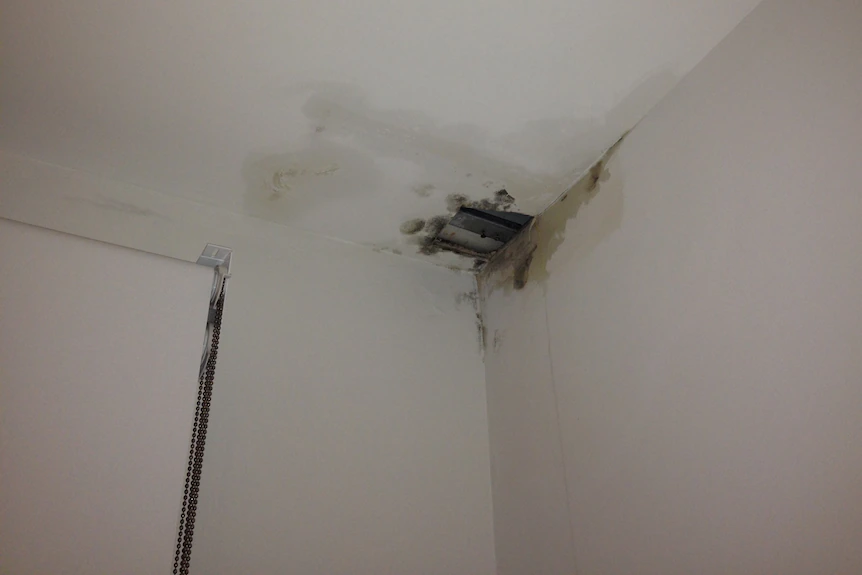This article originally appeared on the ABC website
Nearly 100 people who purchased defective apartments in a Western Sydney development will have their contracts rescinded and deposits returned under a landmark agreement.
The undertaking, struck between the NSW building commissioner and a developer in receivership, is the first of its kind and designed to serve as a caution for financiers considering lending to risky developers.
Two 22-storey apartment high rises in Parramatta, known as Imperial Towers, were nearing completion when government inspectors issued a prohibition order in mid-2021, after finding “serious defects” in the structure, waterproofing and fire safety systems.
The order prevented apartment buyers from moving in, but they were also unable to break their contracts.
Thirty-one-year-old Sydney man Patrick Wang paid an $80,000 deposit for a two-bedroom apartment off-the-plan.
“We’ve been waiting for seven years since we first got it. It’s a big relief,” he said.
Mark Huang, who purchased a two-bedroom apartment in Imperial Towers for his daughter, said he was pleased with the outcome.
“I’m so surprised and I’m so happy,” he said.
However, Mr Huang said it was a protracted battle and consumer protections should be strengthened.
Karen Stiles, executive officer of the apartment owners’ peak body the Owners Corporation Network (OCN), said it was and “incredible breakthrough”.
“It’s a wonderful thing for those people. I cannot imagine the stress they have suffered,” she said.
‘Radical’ agreement
Imperial Towers were built by Sydney developer Merhis, through a subsidiary called Hassall Developments.
The project was funded by Wingate, a private investment firm used by “high-net worth” individuals.
When Merhis collapsed in 2022, Wingate put its Hassall Developments subsidiary into receivership to recoup its investment.
However, it was unable to force buyers to settle on their apartments with the prohibition order in place.
The developer said “serious defects” had been rectified prior to the receiver being appointed, but it wasn’t enough.
To see the order lifted, and an occupation certificate granted, it agreed to a range of extraordinary measures.
All existing contracts would be rescinded, deposits returned, and the apartments could not be sold again for 10 years — which is the statutory warranty period.
Any defects that emerged over the decade would need to be rectified and future buyers informed.
“It’s quite radical,” NSW Building Commissioner David Chandler said.
He said it was a warning to lenders: “You better pay more attention to the people you’re loaning money to because there could be consequences if you continue to lend money to risky players.”
Buyers trapped
Wingate was also permitted, through receiver Deloitte, to sell the entire complex to a single “build-to-rent” operator that adheres to the requirements, which it intends to do.
A spokesperson for Wingate said in statement it was “pleased to have worked cooperatively with the building commissioner to reach this outcome, the first of its kind in the state”.
“Converting the property to a build-to-rent asset helps to address the current housing shortage in NSW by providing further residential rental accommodation (179 apartments and 200 car spaces) in Parramatta, which has a rental market has a vacancy of [about] 1.0 per cent,” the spokesperson said.
Buyers previously complained to the ABC that they became trapped in their contracts after NSW Fair Trading revised a prohibition order.
An initial order, issued on July 1, prevented the developer from registering a strata plan, which could have allowed buyers to enact their sunset clauses and terminate their contracts.
However, it was replaced three weeks later with an order that did not contain that specific clause, and the strata plan was registered, making the contracts binding.
Buyers have been seeking answers for almost two years, and the issue was scrutinised in an NSW upper house inquiry into the regulation of building standards, with some MPs labelling it a “stuff up”.
However, Mr Chandler said he was unable to “interfere” with the registration of a strata plan.
“I have to have a credible relationship with the financial industry and in introducing the RAB Act [Residential Apartment Building Act] they wanted me to be very committed to the fact I wouldn’t interfere with the creation of real property and that’s what the registration of the strata plan did,” he said.
Mr Chandler argued that while it was not his role to stop a strata plan being registered, he could prevent purchasers from being forced to settle on apartments “they might later regret”, which had been achieved through this agreement.
“We had to play by the rules,” he said.
“These depositors will get money back and be able to get on with their life.
“It’s unfortunate it’s taken so long to achieve.”



